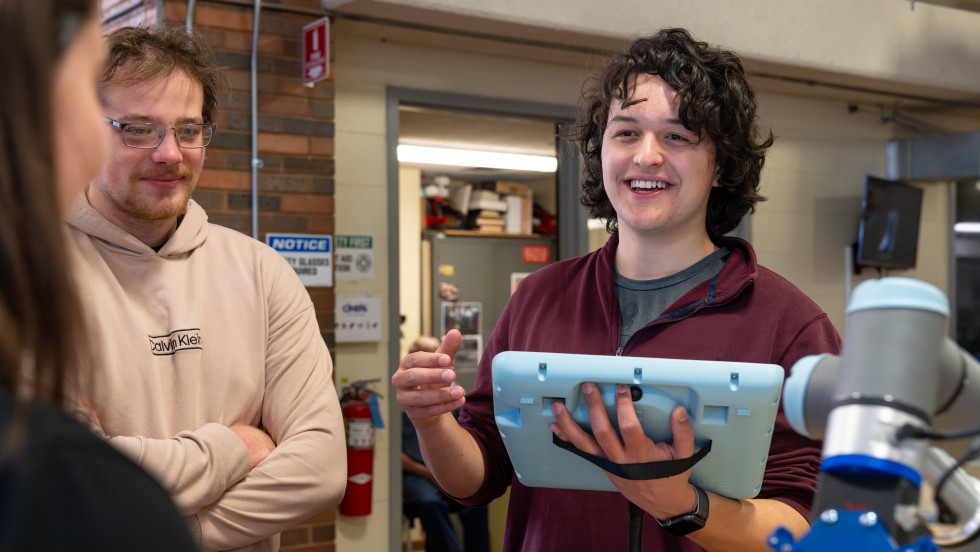Exploring Engineering and Computing Through New Pathways Program
MSOE offers a variety of career paths in both engineering and computer science, but often it can be challenging for a new student to determine which one is right for them. Starting in fall 2025, MSOE will be helping incoming freshmen make more informed choices through the launch of the Engineering Explorers and Computing Explorers Pathway Programs.
Explorer Pathways Program Coordinator Beth Felch, M.S., shared with us some insight into these new programs and how they will further support and enhance student experience.
 Q. The Engineering and Computing Explorer Pathways programs, funded through MSOE’s Strategic Investment Fund, were designed by Dr. Russ Meier & Dr. Sheila Ross to support undeclared engineering and computing majors. Please share more about yourself and your connection to these programs.
Q. The Engineering and Computing Explorer Pathways programs, funded through MSOE’s Strategic Investment Fund, were designed by Dr. Russ Meier & Dr. Sheila Ross to support undeclared engineering and computing majors. Please share more about yourself and your connection to these programs.
BF: I was excited to join MSOE as the Explorer Pathways Program Coordinator in February 2025. Helping students be successful is my passion and I have been doing this in higher ed for over 20 years. With my past experience overseeing undeclared programs and advising Engineering students, I felt this role was a great fit. In my role, I will oversee program activities, act as an advisor to the Explorer students, and teach the Exploring Engineering course in the Engineering Explorer Pathway.
Q. What are some of the biggest benefits to students who are part of the Engineering and Computing Explorers Pathways programs?
BF: Students gain exposure to MSOE majors through hands-on activities, direct interaction with professionals in the field, career exploration, and coursework across multiple disciplines. This immersive experience helps them make informed decisions about their academic path. Throughout the program, students receive personalized support and guidance in selecting the major that best aligns with their interests and career goals. The Explorer Pathways also maintain the same graduation timeline as our direct entry pathways.
Q. What are some of the key takeaways for students who enroll in these programs?
BF: Through the year-long Explorer Programs, students gain the knowledge and confidence to choose a MSOE major. They understand themselves better as a student and as a person which will serve them well throughout their college career and in their future professional lives.
Q. Why are these programs unique to MSOE and how do you see them furthering the University’s mission?
BF: The Explorer Pathways were created to help students who know that they want to solve complex problems but are unfamiliar with the spectrum of degree programs we offer at MSOE. Our unique, specialized first-year courses give students an authentic, hands-on introduction to our disciplines, so students will learn what it is really like to be working in a technical field.
To learn more about these new programs you can contact Beth Felch, M.S. at felch@msoe.edu or visit Engineering Explorers Pathway | MSOE




